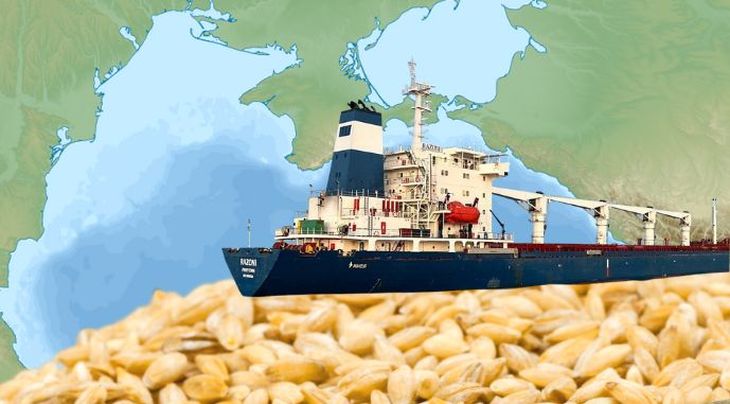Germany, China point to mixed fortunes for Aus exports

Europe’s agricultural policies are back in the spotlight as Australia’s hopes build for a resumption of barley and maybe even canola exports to China.
Germany is the focus of attention, following Environment Minister Steffi Lemke this week stating her intention to call for a stop to the country’s use of crop-based biofuels to achieve reductions in greenhouse gases.
In a Reuters report published on Tuesday, her statement points to both domestic and imported feedstock of first-use crops being shelved.
For Australia, it could mean the loss of its biggest canola customer, with the nation importing 1.18 million tonnes (Mt) of total Australian exports of 5.38Mt in the year to 30 September 2022, just ahead of Belgium on 1.11Mt.
“Biofuels stand for land consumption and loss of biological diversity,” Ms Lemke is quoted as saying in a speech on Tuesday.
“To replace only around 4pc of fossil fuel use in German road transport, a land space in Germany and abroad is needed which represents about 20pc of the German agricultural area.
“That is not future-orientated.”
Biofuel is currently used by German oil companies to help them meet targets in greenhouse gas reduction, and Ms Lemke’s address indicates they would still have a role.
“I want to intensify the use of real biofuels produced from garbage, wastes and used edible oil.”
“Therefore we will, as soon as possible, propose to the cabinet the legal framework for a withdrawal from biofuels from food and animal feed crops.”
While all of Europe has been hit hard by rising energy prices tied to Russia’s invasion of Ukraine, Grain Central understands Germany is so far its only nation to look at removing food crops from industrial use.
Rabobank Agricultural analyst Dennis Voznesenski said oil from crops makes up 76pc of all inputs used for biodiesel in Europe, and Germany’s move could have price impacts for Australian growers in the longer term.
“Even if successful, it will take time for the proposal to become law and then it would take time to substitute crop-based fuels out of the biodiesel mix and build the facilities that can convert waste into biodiesel,” Mr Voznesenski said.
“If the proposal does become law, it would have a negative impact on Australian canola prices.
“Australia could find alternative destinations, but likely at a lower price than Germany offers.”
Rabobank data show that in the five years to 2021, Germany accounted for 33pc of Australia’s total canola exports.
Countering concerns about Germany on canola are hopes that China will return as a buyer of Australian barley and canola.
While China has been a volume buyer of Australian canola in previous years, ABS data indicates the last cargo sailed in November 2020.
China’s return to the market for Australian canola would be welcomed by the trade, particularly if European demand ratchets back on Germany’s possible withdrawal.
What the Australian grain industry is more focused on is hope for China to return as the volume buyer of barley.
This is based on encouraging signals out of bilateral talks between Australia and China in recent months.
These appear to have fostered resumption of Australian exports of coal and lobster to China, but barley is still out in the cold since hefty tariffs were introduced in May 2020.
Flexi Grain pool manager Sam Roache said China remains “the X factor” on barley, and its return as a customer would boost returns to Australian growers and exporters.
“If we gain access to China, there’ll be significant price benefits for Australia,” Mr Roache said.
That equates to roughly US$50 per tonne on logistics alone, based on sending bigger shipments a much shorter distance to a regular market.
“The Chinese are paying to drag European and Argentinian barley to their ports, and we’re backfilling that demand in American and European markets.”
Following a request by the Australian Government made in December 2020, the World Trade Organization is investigating China’s argument for imposing tariffs on Australian barley under the topic: China – Anti-Dumping and countervailing duty measures on barley from Australia.
A panel to look into the issue was composed by WTO’s Dispute Settlement Body in September 2021.
“Due to the complexity of the dispute and the large number of claims involved, the Panel expects to issue its final report to the parties in the first quarter of 2023,” a WTO document dated 5 December 2022 states.
Australia’s Foreign Affairs Minister Penny Wong visited China in December, and after three difficult years, the bilateral relationship appears to be improving, with Australian sectors including wine and timber also hopeful the trade hiatus can end.
“We have seen some supportive news with Penny Wong’s visit and coal rumours, but nothing concrete yet,” Mr Roache said.
“There are plenty of people saying it’s going to be fixed this year.”
Howver, Australia has continued as a major importer of China’s manufactured goods over this period, and China has in recent years been Australia’s biggest wheat, sorghum and mungbean customer.
Read also
Join with the EARLY RATE – 22 International Conference BLACK SEA GRAIN.EUROP...
Brazil sugar output decreased by 23% — Unica
Algeria imposes a complete ban on durum wheat imports in 2025
Weather in Brazil and Argentina remains favorable for the future harvest of soybea...
Ukrainian flour exports are 35% behind last year’s volumes
Write to us
Our manager will contact you soon



